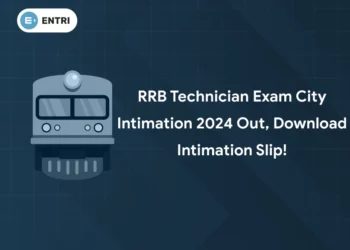Table of Contents
Finding an office job in the civil engineering field can be an arduous task, but with perseverance and dedication, it is possible to land one. Keep improving your skills, stay positive, and actively search for opportunities in your desired field. Read to know the tips for getting Office jobs for Civil Engineers.
Tips for Getting Office Jobs for Civil Engineers
Here are a few tips for civil engineers looking for an office job:
- Obtain a bachelor’s degree: Civil engineering positions typically require at least a bachelor’s degree in civil engineering or a related field. Ensure that you complete your degree from an accredited institution.
- Gain relevant experience: While in college, try to gain practical experience through internships or co-op programs. This will provide you with hands-on experience and make your resume more attractive to potential employers.
- Upskilling: Upskilling your knowledge will help you to earn a high salaried office job. Courses such as Quantity Surveying, Structural Design, MEP-HVAC, BIM etc. will help you outstand in your jobs
- Build a strong resume: Highlight your education, internships, projects, and relevant skills in your resume. Emphasize any office-based tasks or responsibilities you had during your internships, such as drafting, design work, project coordination, quantity surveying or report writing.
- Develop technical skills: Civil engineers need to have a strong foundation in technical skills such as computer-aided design (CAD), structural analysis software, and project management tools. Familiarize yourself with these tools and stay updated with the latest advancements in civil engineering technology.
- Networking: Connect with professionals in the civil engineering field through networking events, industry conferences, and online platforms like LinkedIn. Attend job fairs, seminars, and other civil engineering events to connect with potential employers. Building a professional network can help you learn about job opportunities and gain referrals.
- Job search: Look for office-based civil engineering positions through job portals, company websites, and professional engineering organizations. Tailor your application materials (resume and cover letter) to match the specific requirements of each job.
- Prepare for interviews: Research the company and the position you are applying for. Be prepared to answer technical questions related to civil engineering, as well as behavioral and situational questions. Showcase your communication, problem-solving, and teamwork skills during the interview.
- Professional certifications: Consider obtaining professional certifications such as Engineer-in-Training (EIT) or Professional Engineer (PE) license. These certifications can enhance your credibility and open up more career opportunities in the civil engineering field.
- Continual learning: Civil engineering is a field that constantly evolves, so it’s important to stay updated with the latest industry trends and advancements. Attend professional development courses, workshops, and seminars to enhance your knowledge and skills.
By following these guidelines, civil engineers can take the necessary steps to secure an office job in their desired field. With persistence and hard work, you can land the perfect job for yourself.
|
Engineering Upskilling Courses
|
| MEP Course |
| BIM Course |
| Structural Design Course |
| Oil and Gas Course |
Office Based Civil Engineering Jobs
1: What is the main purpose of a Bill of Quantities (BoQ)?
Civil engineering offers a wide range of opportunities in various specialties, and many professionals in these roles work in office environments, utilizing their technical skills and expertise to contribute to infrastructure projects.
Here are some examples of office-based civil engineering jobs:
- Design Engineer: Design engineers in civil engineering work in offices, utilizing computer-aided design (CAD) software to create detailed plans and drawings for various infrastructure projects. They develop designs for roads, bridges, buildings, drainage systems, and other structures, ensuring compliance with regulations and safety standards.
- Project Engineer/Coordinator: Project engineers or coordinators oversee and manage civil engineering projects from an office setting. They work closely with project managers and field teams, reviewing project plans, coordinating resources, tracking progress, and communicating with stakeholders. They ensure that projects are completed within budget, on time, and meet quality standards.
- Estimator: Estimators analyze project specifications and blueprints to calculate the cost of materials, labor, and equipment required for construction projects. They prepare detailed cost estimates and proposals, considering factors such as labor rates, material costs, project duration, and potential risks.
- Structural Engineer: Structural engineers in office settings specialize in designing and analyzing the structural components of buildings, bridges, and other infrastructure projects. They use software and tools to create and evaluate structural designs, ensuring they meet safety and performance requirements.
- Planning Engineer: Planning engineers develop and analyze project schedules, resource allocation plans, and progress reports. They use project management software to track milestones, coordinate with different teams, and ensure that projects progress according to the planned timeline.
- Transportation Engineer: Transportation engineers focus on the planning, design, and operation of transportation systems. They analyze traffic patterns, conduct feasibility studies, and propose improvements for roadways, intersections, and public transportation systems. They may also work on traffic signal optimization and transportation modeling using specialized software.
- Environmental Engineer: Environmental engineers assess the environmental impact of construction projects, develop strategies for pollution control, and ensure compliance with environmental regulations. They conduct site assessments, prepare environmental impact reports, and recommend mitigation measures.
- Water Resources Engineer: Water resources engineers focus on managing and conserving water resources. They design and analyze systems for water supply, flood control, wastewater treatment, and stormwater management. They may use computer models to simulate and predict water flow and perform hydraulic calculations.
- Quantity surveyor: A quantity surveyor (QS) is a construction industry professional with expert knowledge on construction costs and contracts. Quantity surveyors are responsible for managing all aspects of the contractual and financial side of construction projects. They help to ensure that the construction project is completed within its projected budget.
- BIM Engineer: BIM engineers specialize in Building Information Modeling, a technology-driven role essential in modern civil engineering. They create and manage digital 3D models of construction projects using tools like Revit, Navisworks, and AutoCAD. BIM engineers coordinate with various teams to ensure design accuracy, detect clashes, and improve collaboration. Their role significantly enhances project efficiency by integrating real-time data and visualizing construction processes before execution.
Learn quantity surveyor course !
Build a Career in Quantity Surveying with Entri
A Quantity Surveyor is an important role in the construction industry, responsible for measuring, estimating, and managing the financial aspects of a construction project. A Quantity Surveyor Course will teach you the necessary skills to be successful in this profession, including how to read plans and specifications, calculate budgets and costs, and manage construction project costs.
With an understanding of what’s involved in quantity surveying, you can hone your skills and knowledge to become a specialist in the field.
What is the Workplace/Work Environment of a Civil Engineer Like?
Civil engineers typically work in offices or in the field. In the office, they use computers and other specialized software to plan, design, and manage construction projects. Depending on the scope of their projects, they may occasionally visit construction sites to ensure designs are being followed or to observe the progress of a project.
There is a great deal of collaboration amongst civil engineers, architects, and other engineers, and the work environment is generally relaxed and professional. Civil engineers must also frequent meetings with clients and local government officials in order to discuss project goals and timelines. In addition, they often work with contractors and sub-contractors in order to ensure everyone has the resources and information needed to complete a project.
Civil engineers must stay up-to-date on relevant laws and regulations pertaining to construction and the environment. As such, they must be able to work in a variety of teams and environments, and be flexible as projects may change quickly.
What are the Skills and Qualities Required to become a Civil Engineer?
• Strong technical, analytical, and problem-solving skills
• Good communication and interpersonal skills
• Good project management skills
• A commitment to quality
• Mathematical and computer proficiency
• Attention to detail
• Ability to learn quickly
• Knowledge of construction materials and methods
• Understanding of engineering principles and practices
• Ability to work independently or in a team environment
• Ability to follow safety guidelines
Join our Quantity Surveyor Course by Expert Mentors! Get a Free Demo Here!























